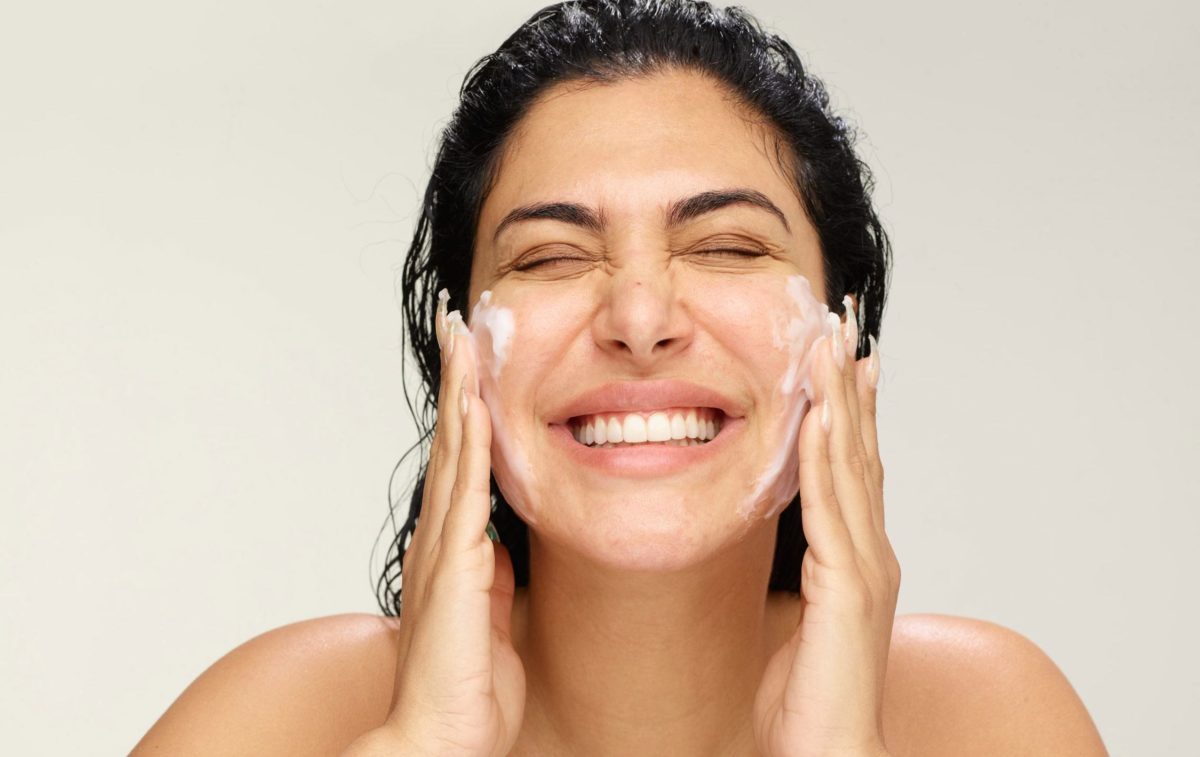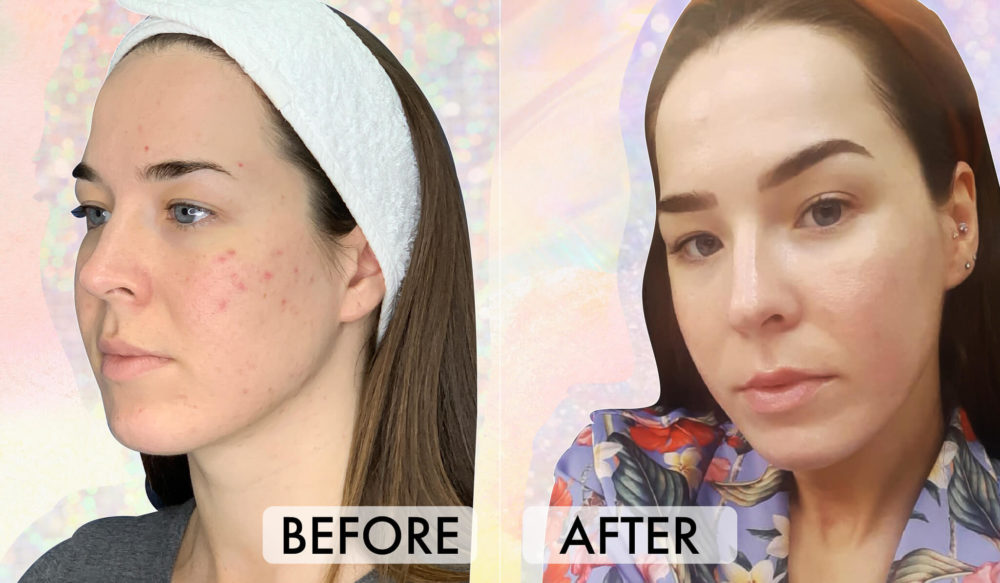Why Keeping Your Skin Hydrated Is SO Important

When it comes to skin goals, one keyword that’s often overlooked is hydration. We’re often so busy trying to soften fine lines, minimize our pores, and calm hormonal pimples, that sometimes keeping our skin hydrated gets left behind. But the truth is, keeping your skin hydrated is one of the best things you can do for your skin – it’s a cornerstone of Korean skin routines – and you’ll likely find that by prioritizing this in your skincare routine that many of your other skin concerns will improve as a result.
New York-based dermatologist, Dr. Doris Day, explained, “Your skin is your first and best layer of protection for your body from the outside world. It functions at its best when it’s healthy and intact. When you have dry skin you have increased water loss from the skin which can end up not only leaving it dehydrated but also reduce its ability to naturally combat and repair damage from pollution, sun, and other ‘insults.’” Therefore, making sure your skin is always hydrated means that your skin is able to function better.
Dehydrated skin lacks having enough water in it, which means it’s not a skin type, it’s something that everyone can experience, whether your skin is oily, normal or dry – in fact, sometimes excess oil can be caused by dehydration!
The Difference Between Dry and Dehydrated Skin
If you’re wondering what the difference is between dry and dehydrated skin, Dr. Day explains that “dry skin is related to the outermost layer of the skin, namely the stratum corneum,” whereas “dehydrated skin is skin that has had excess water loss due to both internal and external factors.” She continues to explain that “You can drink all the water there is and still have dry skin.”
However, dehydrated skin is usually down to a combo of internal and external factors, it could be that you’re not drinking enough water – you should aim for at least two liters a day – however, you can still have dehydrated skin while your body is hydrated. Too much salty food, sugar, alcohol, and drinking too much caffeine are the most common contributors to dehydrated skin. External factors like “excess sun exposure and excess hot yoga, which essentially cook the water out of your skin,” will also cause skin dehydration.
The Difference Between Hydrated and Dehydrated Skin
“Your skin contains a key ingredient called hyaluronic acid. Its job is to help with the water balance of the skin and even of the entire body. When your skin is well hydrated, the hyaluronic acid in your body binds water, and that gives your skin firmness (the medical term for that is turgor). When your skin is dehydrated, it will start to sag, and that can make it look older and more wrinkled,” Dr. Day explains.
Essentially, Dr. Day says that “Dehydrated skin can look saggy, crepey and tired” and that you may also notice increased under-eye bags. As well as these tell-tale signs, other signs to look for including your moisturizer absorbing particularly fast (it’s literally trying to ‘drink’ in the moisture), and it could cause your makeup to look patchy. Well-hydrated skin is a sign of good barrier function, which is important for protecting your skin.
Another point to note is that as we age, our skin produces less natural moisturizing factors like ceramides, lipids, hyaluronic acid, and fatty acids, so as you age, keeping your skin hydrated and well moisturized becomes even more important.
How to Keep Your Skin Hydrated
Keeping your skin hydrated is a combination of ensuring you’re drinking enough water, going easy on the things we know dehydrate – and which are generally just not good for our body – like the aforementioned alcohol, sugar, and salt, and topically applying moisturizers to avoid water loss. If you’re dehydrated, Dr. Day says to “Avoid excess salt, moisturize well, especially at night.”
When it comes to products, Dr. Day says that ceramides and hyaluronic acid are the best for hydrating the face. When using hydrating products, it’s important to ensure you lock everything in with a moisturizer, which typically includes three types of ingredients: emollients, humectants, and occlusives. Dr. Day explains what each does;
Emollients: These ingredients moisturize the skin and help with skin barrier restoration. They smooth and soften the skin filling the gaps between cells with droplets of oils. Some emollients can also be considered occlusives. Emollients include jojoba oil, ceramides, aloe vera, and oleic acid.
Occlusives: It creates a barrier on the skin and occludes (or blocks) water from leaving the skin from the inside, essentially trapping moisture in the skin and preventing other ingredients from penetrating the skin from the outside. These are typically thick and often greasy products. A classic example of occlusives includes shea butter and petrolatum, which Dr. Day says are “great for the body and for those with very dry skin, but can be comedogenic and would not be ideal for those who are acne-prone or with oily skin.”
Humectants: “Ingredients like hyaluronic acid and lactic acid, they help pull water into the skin and hold it there. They are not usually occlusive,” Dr. Day tells us. Other humectants include honey, ceramides (which are essentially the building blocks of skin), glycerin, and amino acids.
Dr. Day also adds, “If you have very dry skin, you might select one that is richer and more occlusive. If you have combination skin, you would look for one that is lighter and more of a humectant.”
Dr. Day Shares her Top Tips for Keeping your Skin Hydrated:
Don’t over-exfoliate: “That will strip the skin and lead to excess water loss.” Think about skipping out on your AHAs or opt for a more hydrating AHA, like lactic acid.
Hydrate deeply at nighttime: “Use a richer moisturizer at night since you naturally lose more water from the skin at night.”
Go easy with actives: “Don’t pile on the highest concentration of every acne medication; salicylic acid, glycolic acid, retinols are great but no need to use them all in their highest concentration or all at one time.”
Focus on your wellness: “Getting enough sleep, minimizing alcohol intake, having a healthy diet all helps your skin function at its best.”
Choose skincare wisely: “Using the right products for your skin will help it best use its own natural resources to repair and age beautifully.”
Dr. Day’s Top Product Recommendations for Instant Hydration:
Doris Day M.D. Ultra Rich Peptide Renewal Cream, $103: “It contains ceramides, shea butter, peptides, and vitamin E, and improves the skin barrier. You get an immediate healthy glow and a great anti-aging effect.”
Skinceuticals Triple Lipid Restore 2:4:2, $150: “It also contains ceramides and its claim is that it helps improve tolerability to retinol.” The formula also packs essential lipids to restore skin elasticity and hydration cycles, and vitamin E for skin repair and to defend against environmental damage.
When your skin is particularly parched and dehydrated, be sure to stay away from ingredients like retinol and AHAs, and BHAs. Instead, load up on hydrating ingredients like ceramide serums and hyaluronic acid, and glycerin facial mists, throw on a sheet mask and lock it all in with a rich, hydrating moisturizer. Whenever we need an instant hit of moisture, we always go to our WISHFUL Thirst Trap Cocoon Mask, $9, which is packed with aloe vera and sodium hyaluronate to soothe and hydrate your skin, and allantoin and niacinamide to brighten and protect. The mask is dripping in serum thanks to a unique double-layer-fiber technology that allows it to hold significantly more of the powerful vitamin-rich essence than any conventional sheet mask. We then lock in all that delicious moisture with our WISHFUl Honey Whip Peptide Moisturizer, $43, which boasts peptides to strengthen the skin barrier, cica to soothe, collagen to plump, and manuka honey for a surge of glow-getting antioxidants.
Check out some of our other fave intensely hydrating products here.























Leave a comment